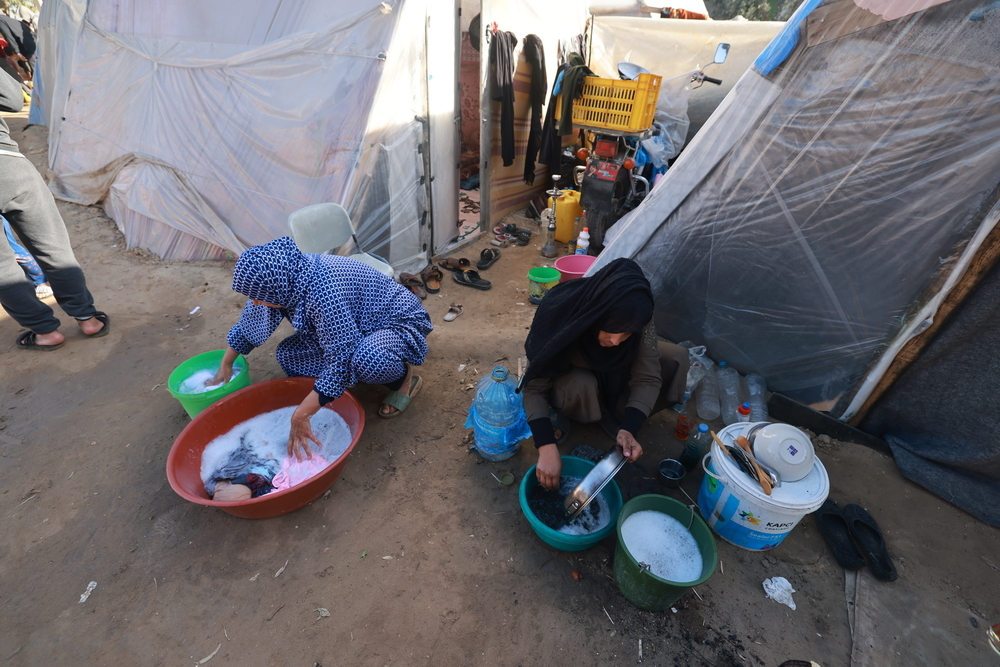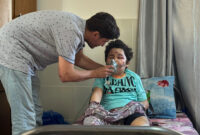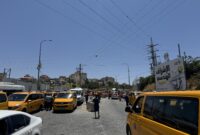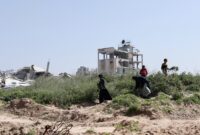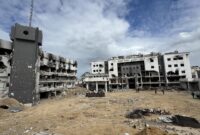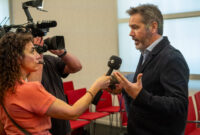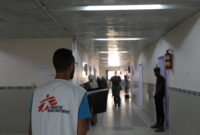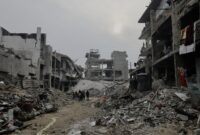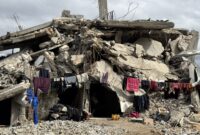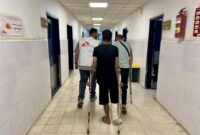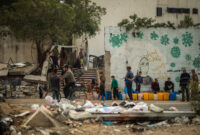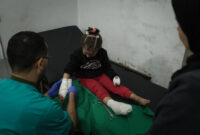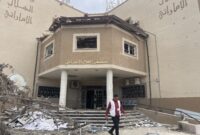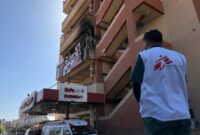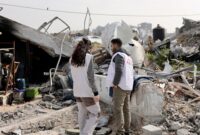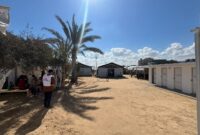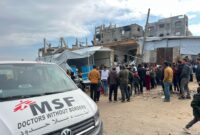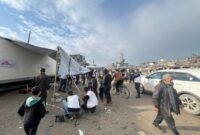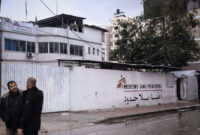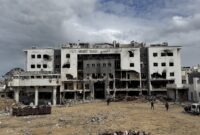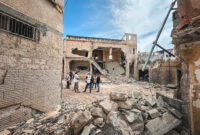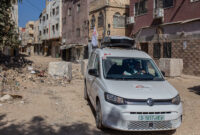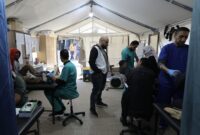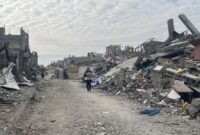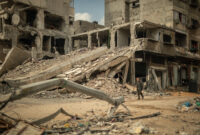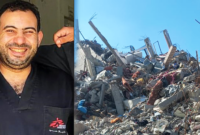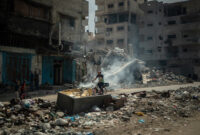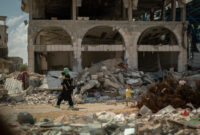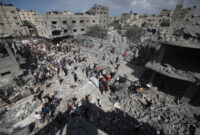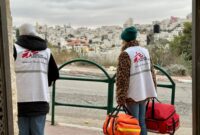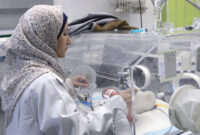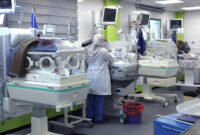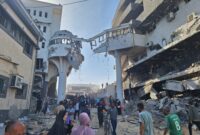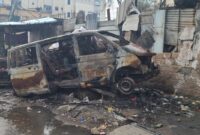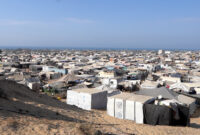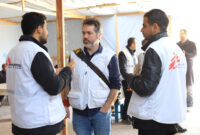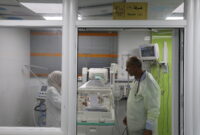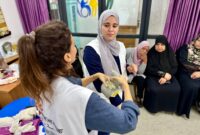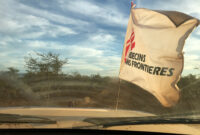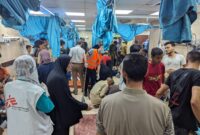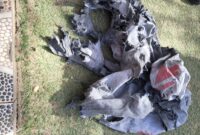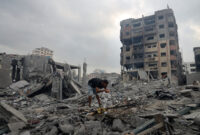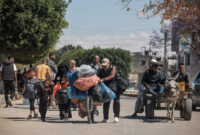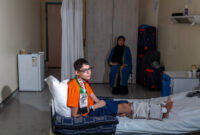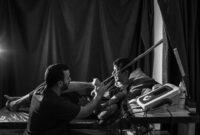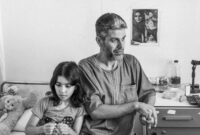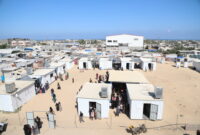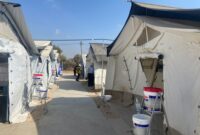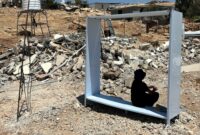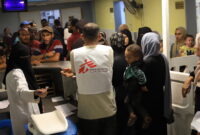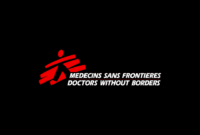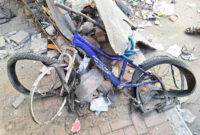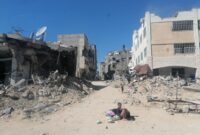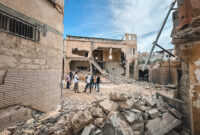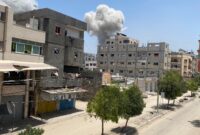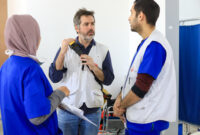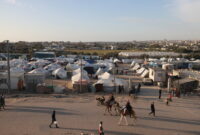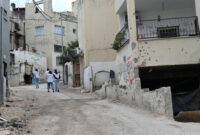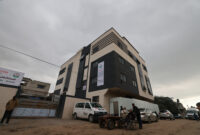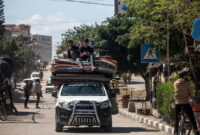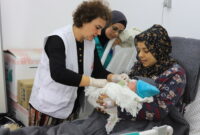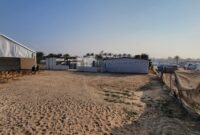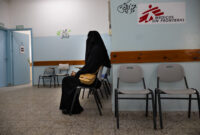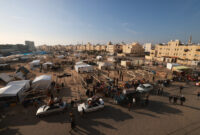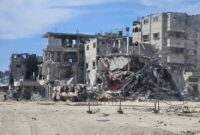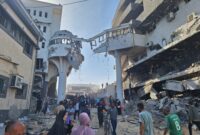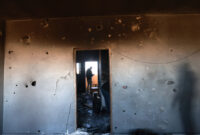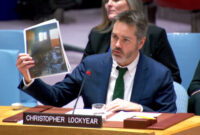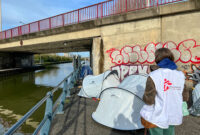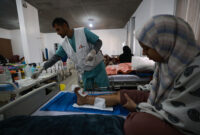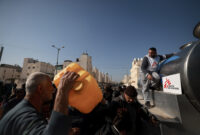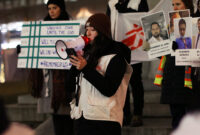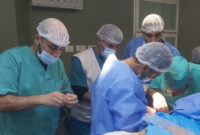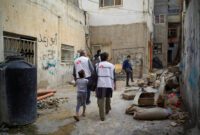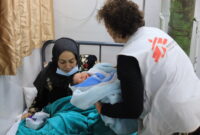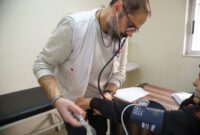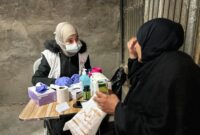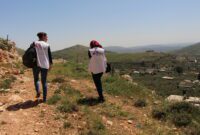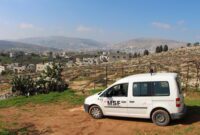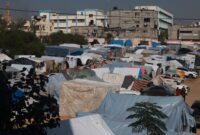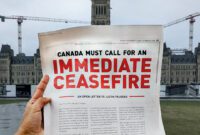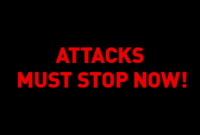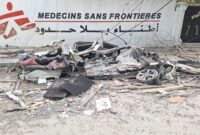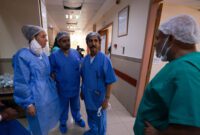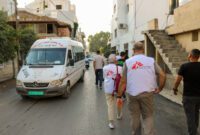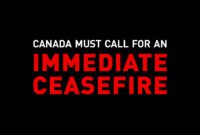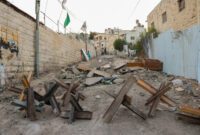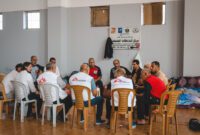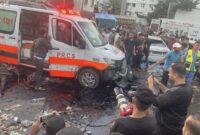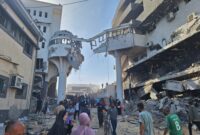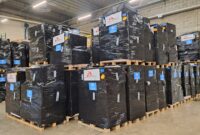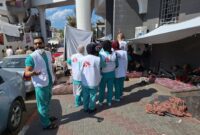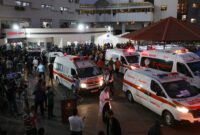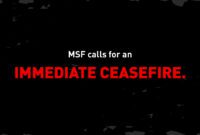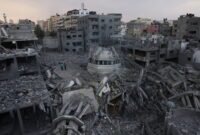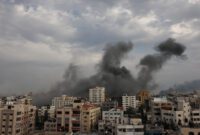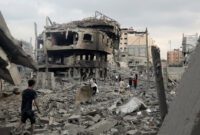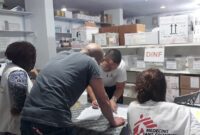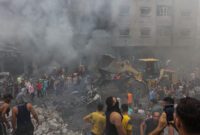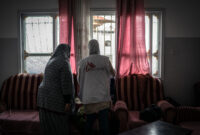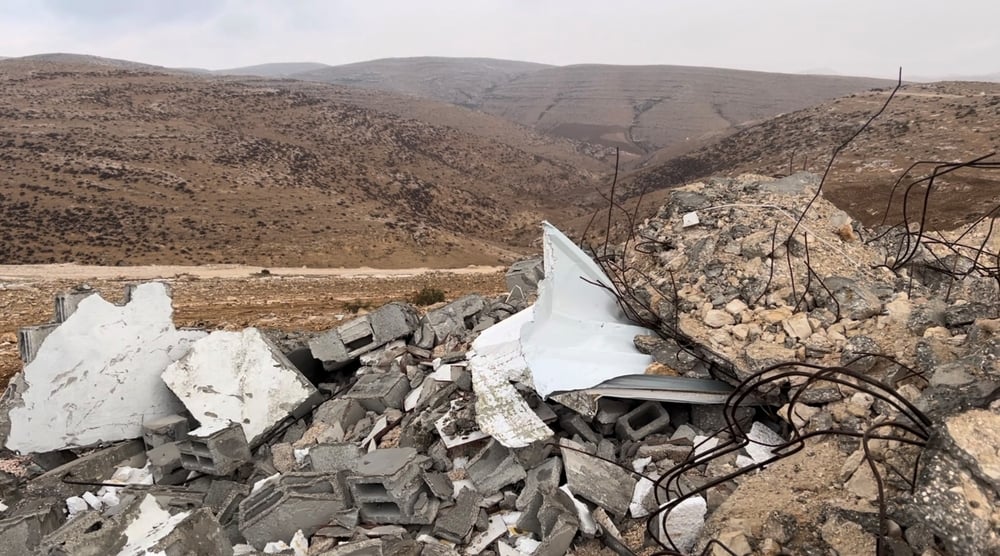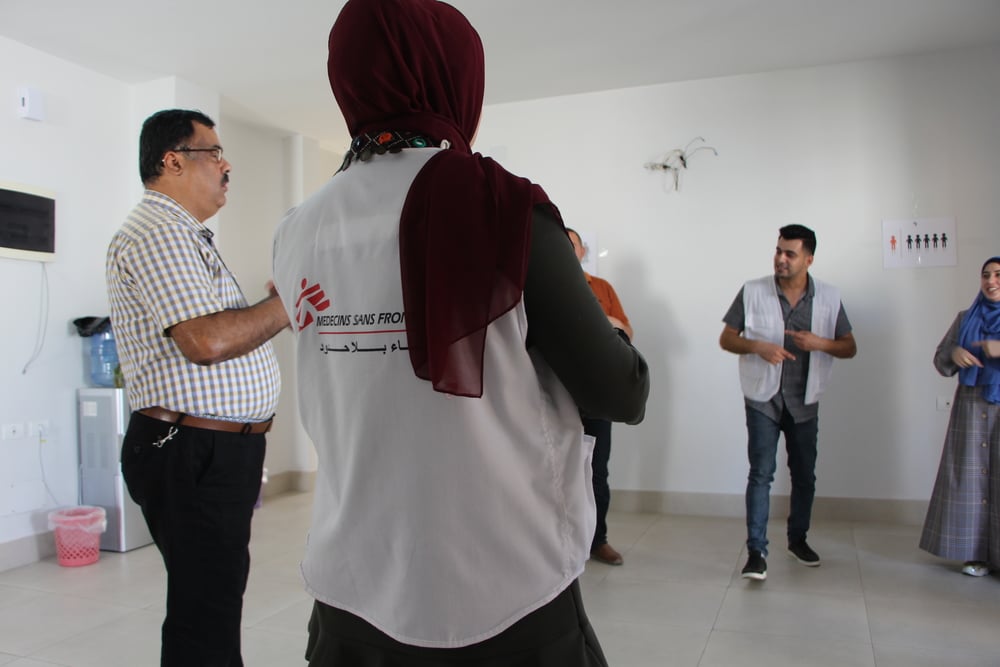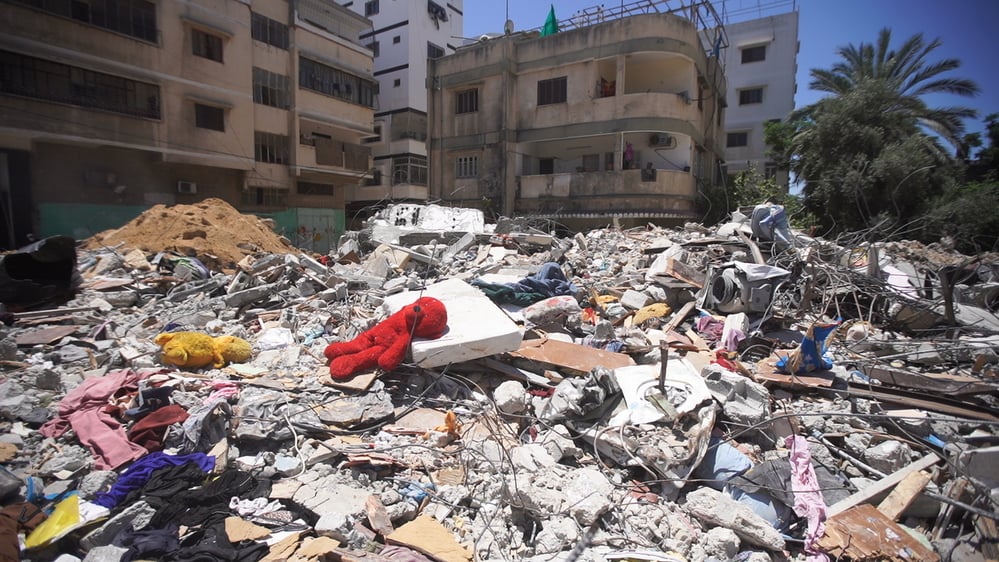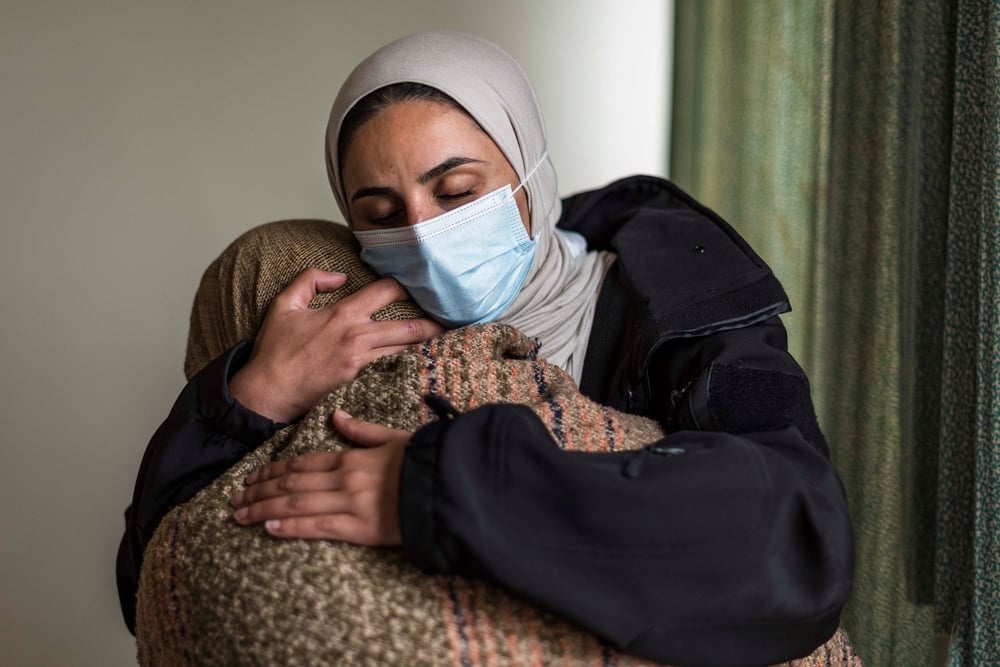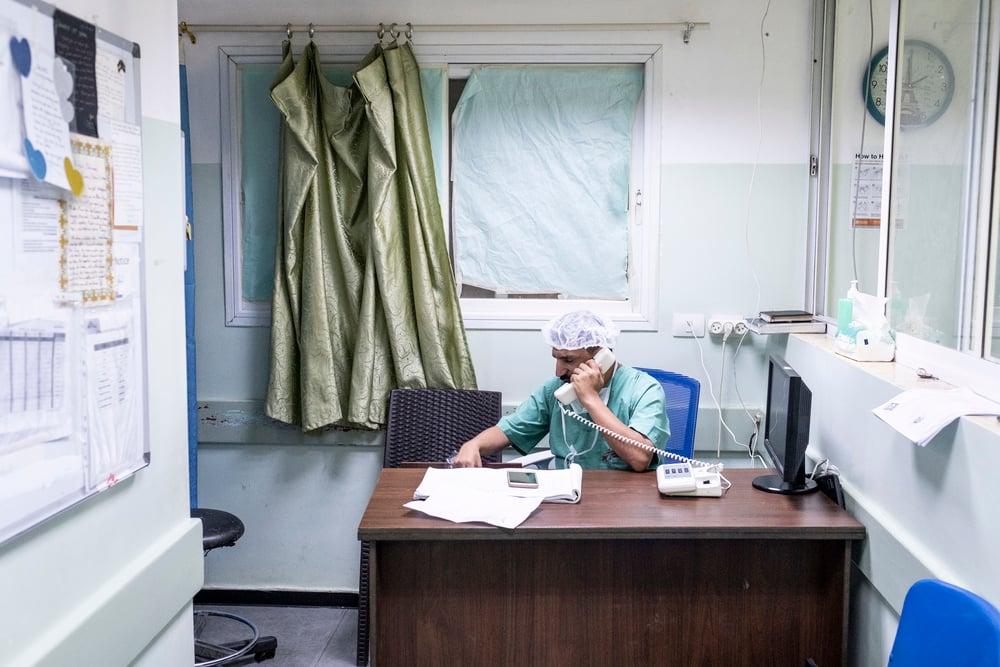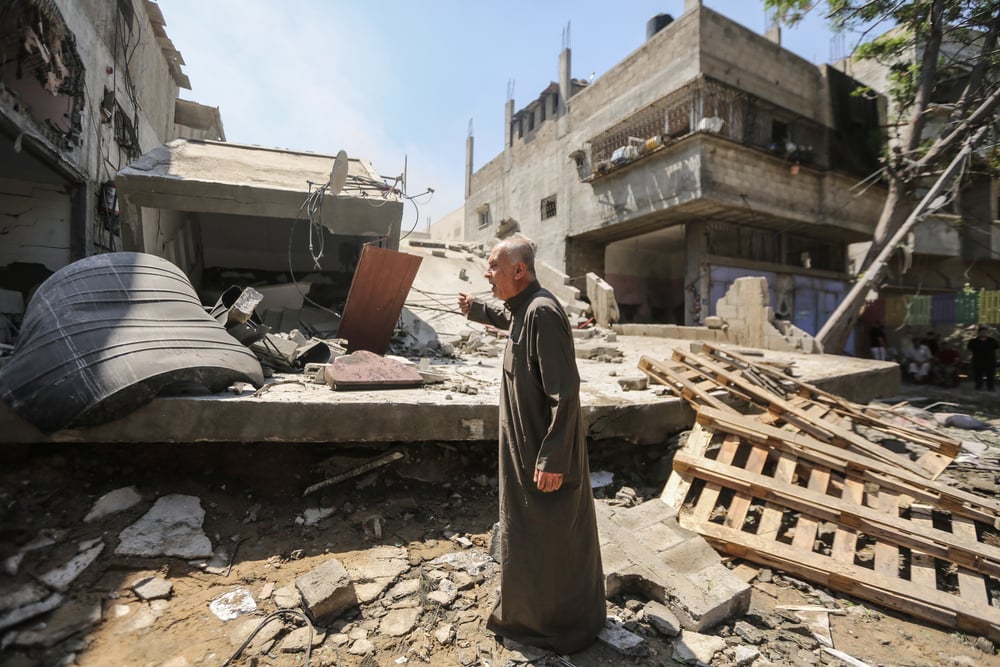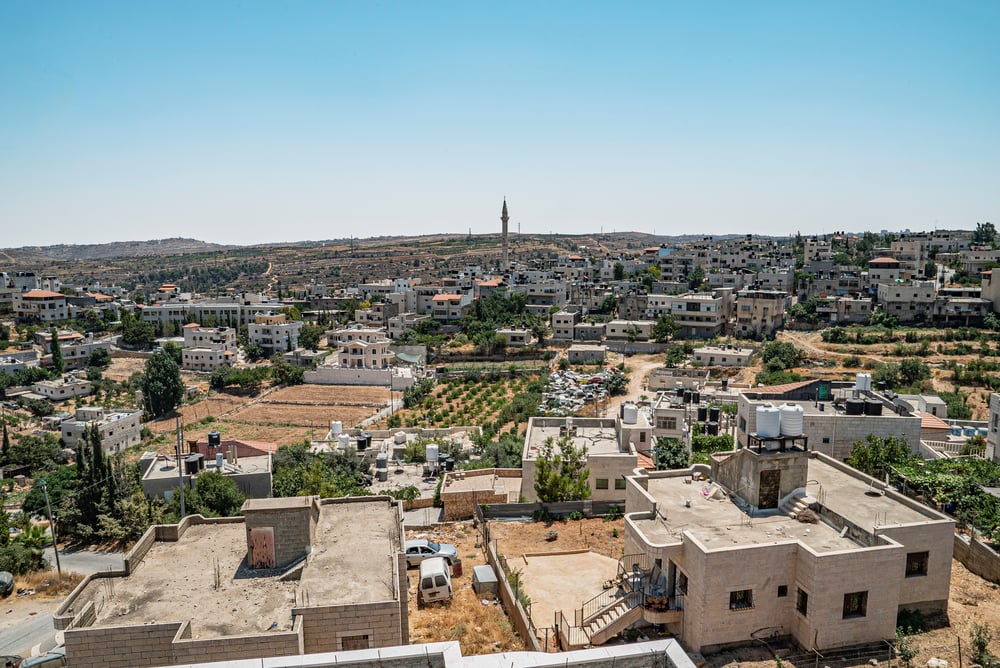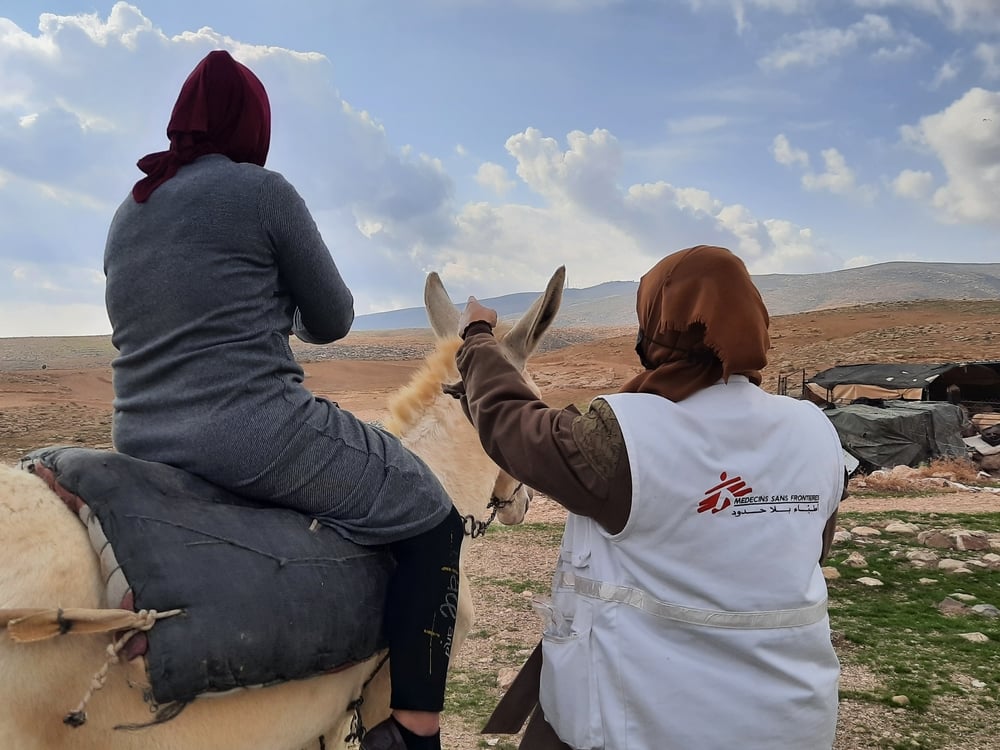This is not somebody else’s war
Annie Thibault recently returned from working with Doctors Without Borders/Médecins Sans Frontières (MSF) in Gaza for four weeks. Her role as administration manager included human resources and finance as well as advocacy. She was based in Rafah and visited health facilities in southern Gaza. Annie is from Saint-Sauveur, Quebec.
“Is it as bad as they say?” is the most common question I receive since returning from Gaza in early March. I often fantasize about having the time and energy to respond to each person with a detailed and honest account, much like the one you are about to read.
Imagine 2.8 million civilians confined to a narrow, besieged strip of land about half the size of Toronto. In this enclave, not a single individual is safe and not an inch of land is secure. This is Gaza today.
Imagine 85 per cent of the people in this small area forced to flee their homes, seven out of 10 of those homes reduced to ashes, and more than half of the territory under evacuation orders by a foreign military power – leaving the rest of the area as one of the most densely populated spaces on earth. This is Gaza today.
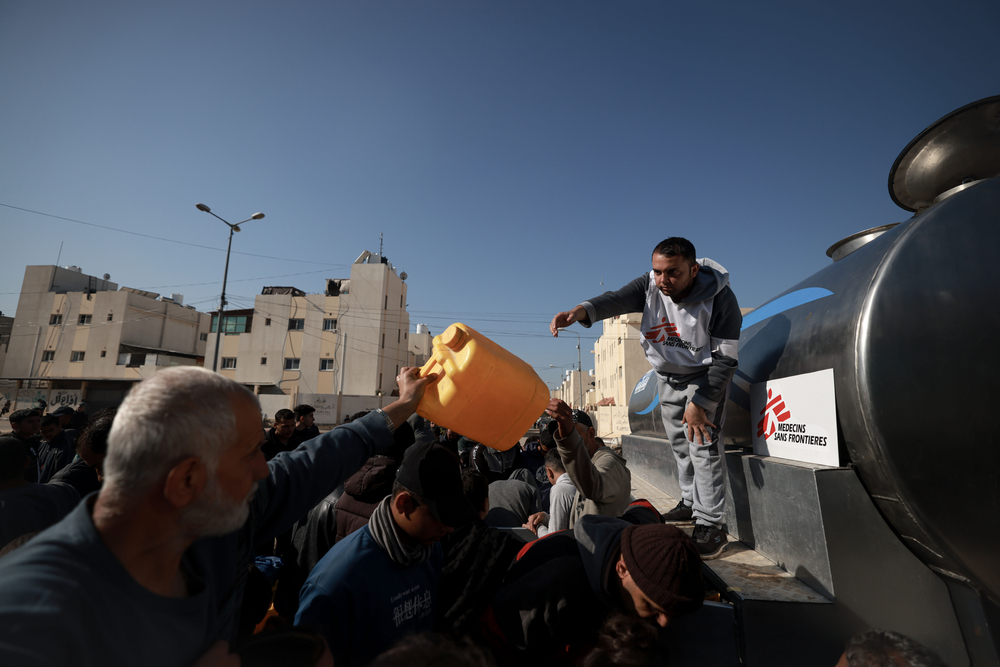
Picture a place where blasts come from the earth, the sky and the sea. Where the constant sound of gunfire, exploding buildings and drones form the background symphony. Where mushrooms of smoke are the typical skyline view. This is Gaza today.
Envision health facilities attacked, besieged, and turned into dust, in complete opposition to international humanitarian law, and those that remain operating at 300 per cent capacity. Doctors forced to watch their patients die for lack of the most basic medical supplies, new mothers discharged a mere four hours after a C-section, children enduring agonizing surgeries without anesthesia.
So this is Gaza today, a place where humans are deprived of their fundamental rights of access to safety, access to healthcare, access to humanitarian assistance.
Deprived of their right to live.
The only thing that remains to prove we have not fully lost our sense of humanity and responsibility, is a full and complete ceasefire.
Every day since the beginning of this war, everyone’s life is at risk in Gaza. No one is safe, nowhere is safe in Gaza. The international community bears the collective responsibility to protect civilians and uphold international law, yet the unbearable delays in reaching a ceasefire agreement instead reveal the astonishing unwillingness of many international governments to enforce the principles they should safeguard. Lives continue to be lost and damaged as the blinded warring parties pursue their fight at all costs and in absolute disregard for any semblance of rules.
Each passing day, the world is completely failing people in Gaza. We are stuck in a costly deadlock, unable to stop or even pause this war. A war no one will win.
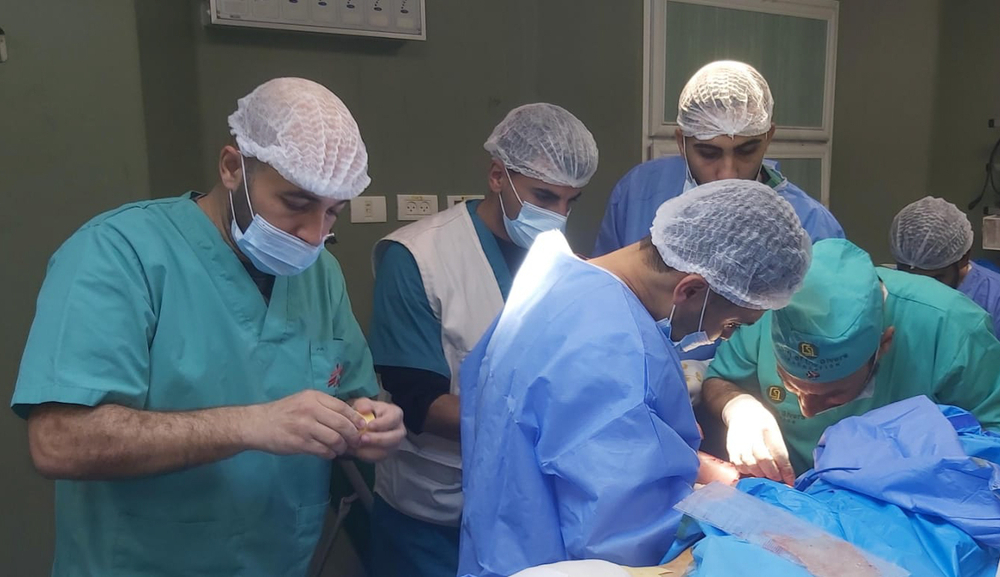
What is happening [in Gaza] is happening to all of us.
Each passing day, we are witnessing the serious erosion of the principles established in the Universal Declaration of Human Rights and the Geneva Conventions to the point where they now appear to be nothing more than an illusory utopia. The only thing that remains to prove these texts support truly achievable standards is a full and complete ceasefire. The only thing that remains to prove we have not fully lost our sense of humanity and responsibility is a full and complete ceasefire.
So yes, it’s as bad as they say in Gaza. And this is not somebody else’s war – what is happening here is happening to all of us. What hangs in the balance is heavy. Our collective conscience is at stake.
Palestinian existence in Gaza is at stake.
“Us Palestinians, we love life. We want to live.” This is what a colleague told me on my last day in Gaza.
Stop the war.
In 2023, Annie worked with MSF as a humanitarian affairs officer in Chad, supporting Sudanese refugees. Read about her work and the crisis facing Sudanese in Chad: “Chaos lives in a place like this.”
